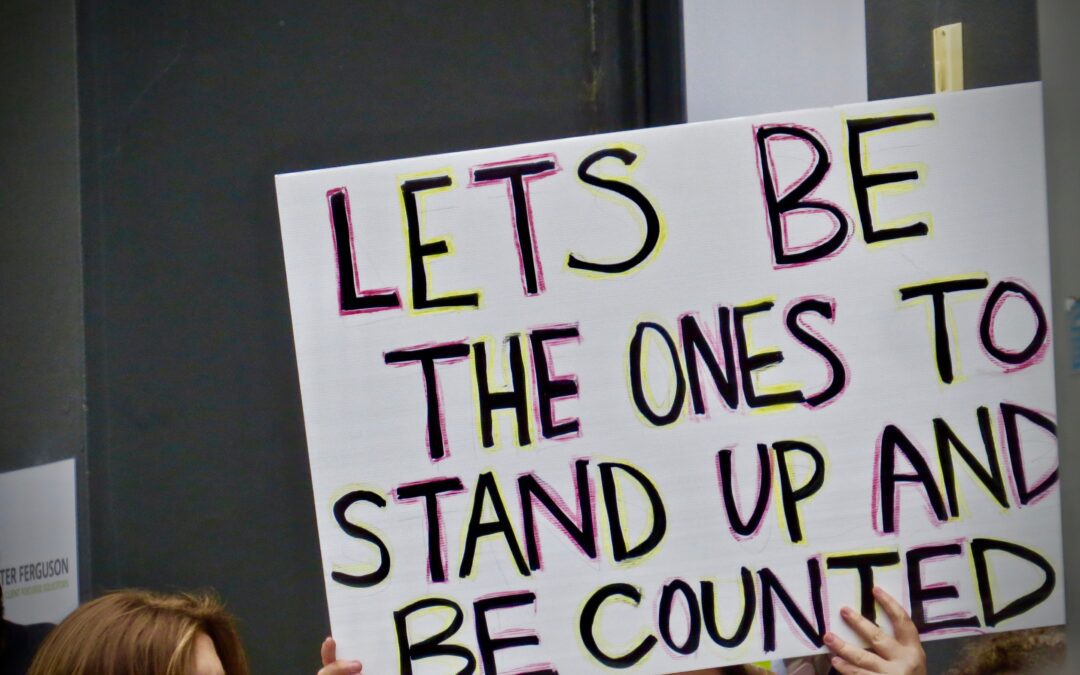The federal government has committed more than $1 million to referendum education for the Aboriginal Torres Strait Islander Voice to Parliament on Wednesday night. This comes after voter support for the voice appears to be waning.
The Australian Government, in tandem with the Museum of Australian Democracy (MoAD) and the Constitution Education Fund Australia (CEFA), announced that the grassroots education and funding proposal would improve information accessibility about the constitution and referendum procedures.
In a statement on Wednesday, Minister for Indigenous Australians Linda Burney said that increasing avenues to trusted, neutral and easily comprehendible information would be essential for voters to make knowledgeable and respectful contributions.
“For many Australians this will be the first referendum they’ve ever participated in, and it’s crucial they have the facts to make an informed decision,” Ms Burney said.
This announcement comes after support for ‘The Voice’ dropped 7 points since December 2022, and as leader of the opposition Peter Dutton vowed the Liberals would actively oppose and campaign against it.
“We have been clear we don’t support his Canberra voice. It is divisive and won’t deliver the outcomes to people on the ground,” Dutton said.
In two SMS surveys conducted by Roy Morgan with an Australia-wide cross-section of nearly 1,500 Australians in December and again in mid-April, respondents were posed the question, “if a referendum were held today that establishes an Aboriginal and Torres Strait Islander Voice to Parliament would you vote Yes, No or are you undecided?”.
The snap SMS survey revealed that support for the establishment of ‘The Voice’ had plunged to 46 per cent from 53 per cent in December, whilst Australians to vote ‘no’ had jumped 9 points, with the undecided vote remaining relatively unchanged at 15 per cent.
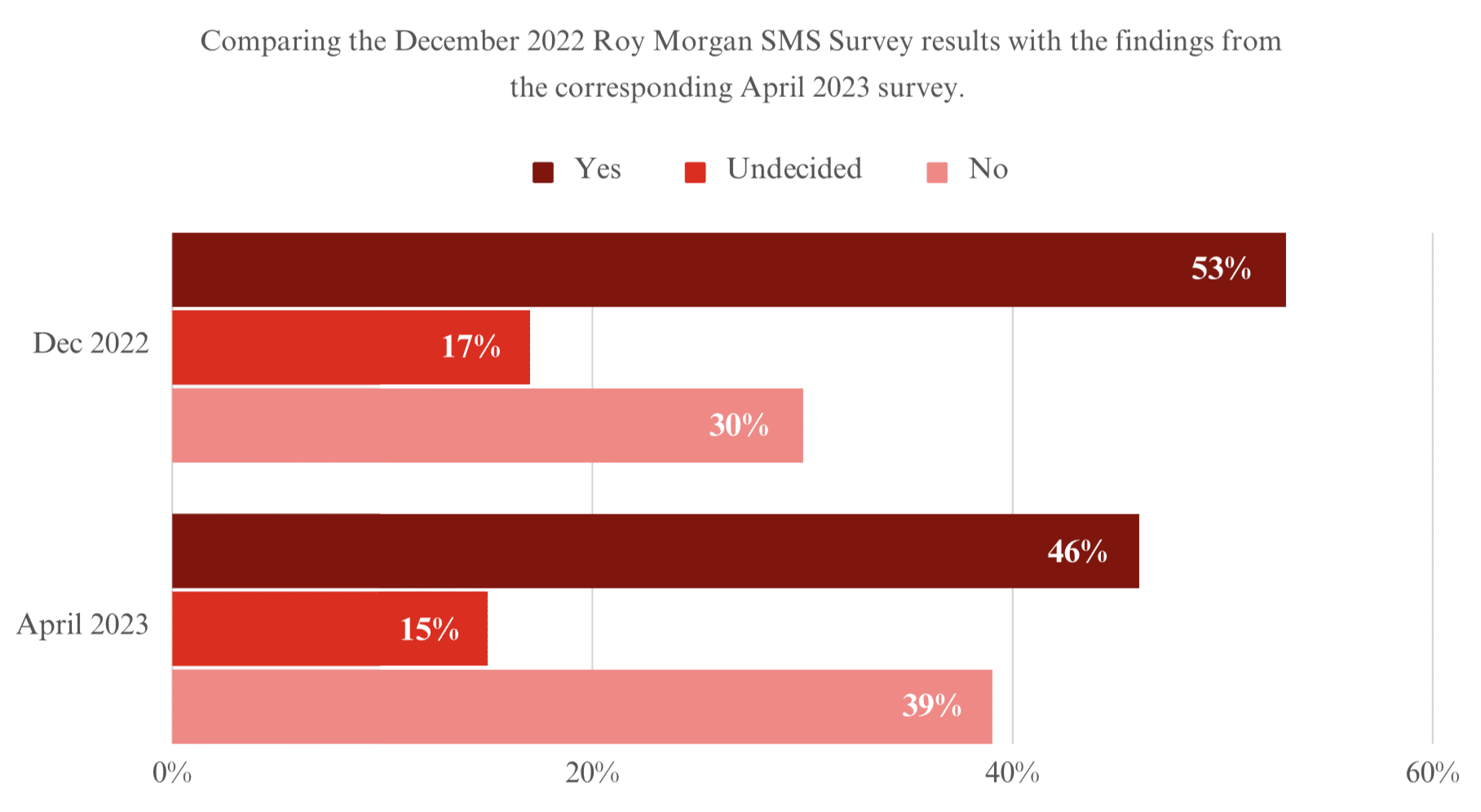
Michele Levine, CEO of Roy Morgan, attributed the loss of support for ‘The Voice’ over those months to the Liberal Party’s declaration to formally oppose it alongside National Party colleagues, saying “the politicisation” likely caused the striking change.
“Support for ‘The Voice’ amongst ALP supporters and Greens supporters is virtually unchanged since December – 75 per cent of ALP supporters and 89 per cent of Greens supporters say they will vote ‘Yes’,” Levine said.
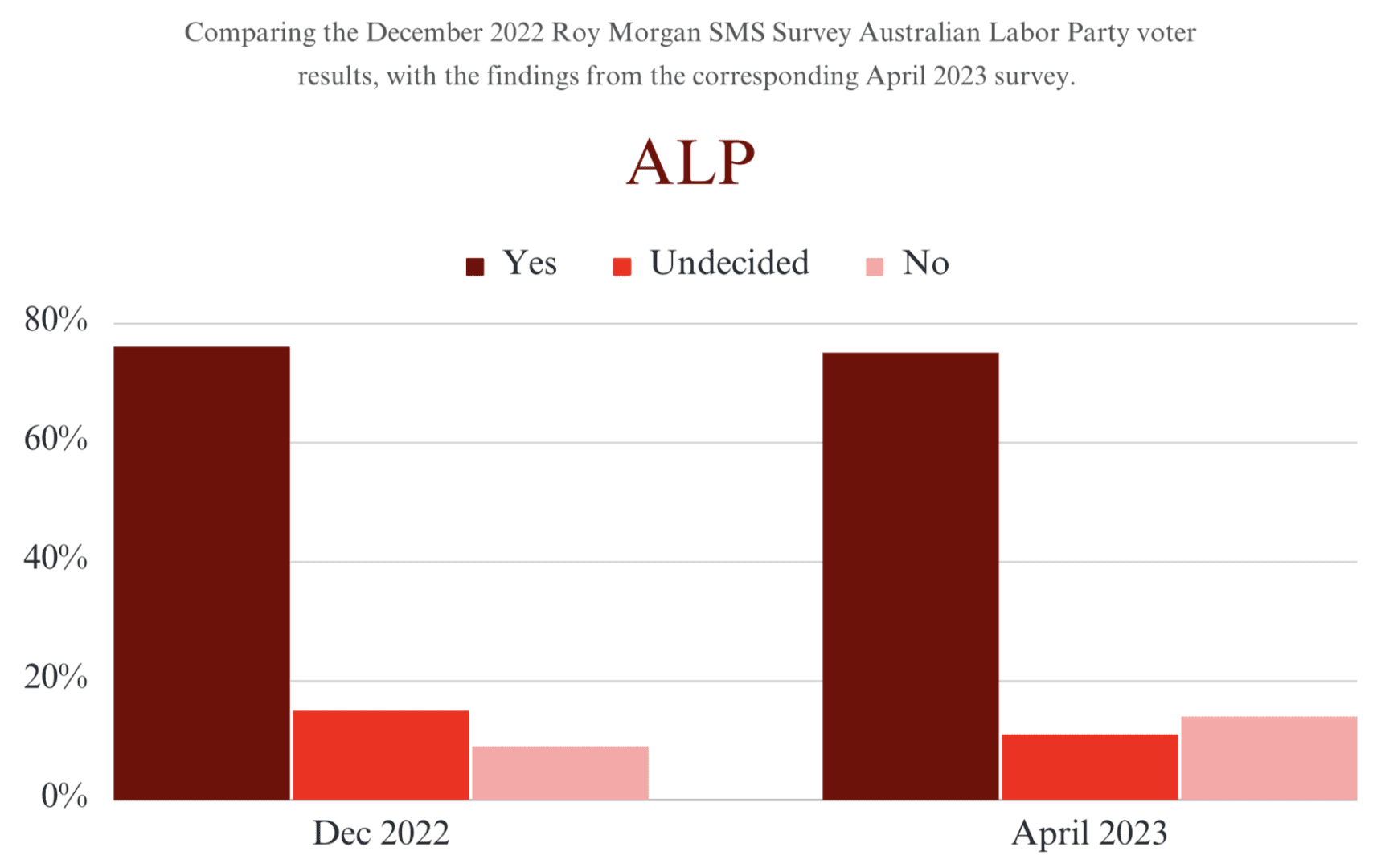
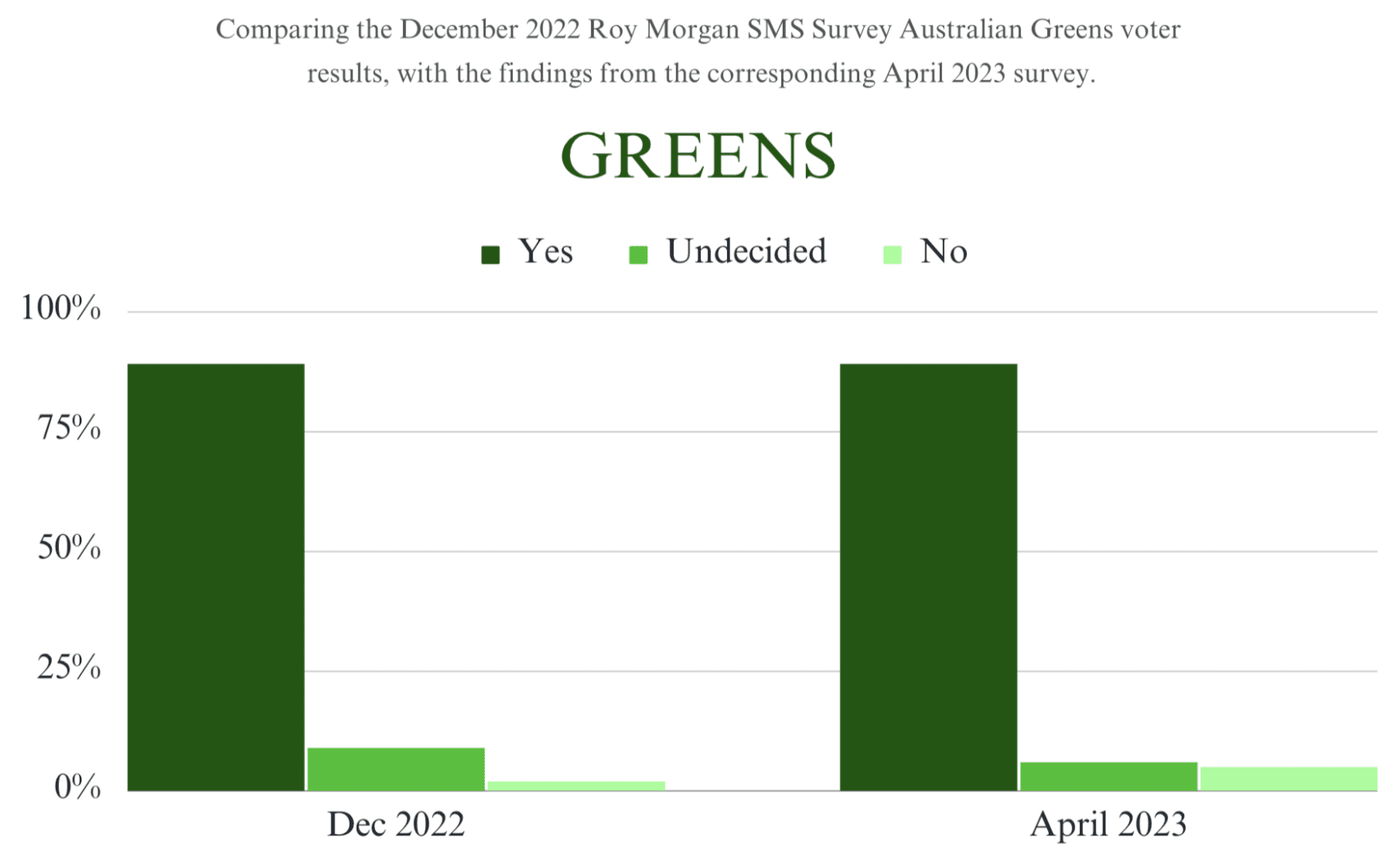
“However, support for ‘The Voice’ has collapsed amongst Liberal supporters to only 6% (down 9% points), and One Nation supporters to only 7% (down 11% points).”
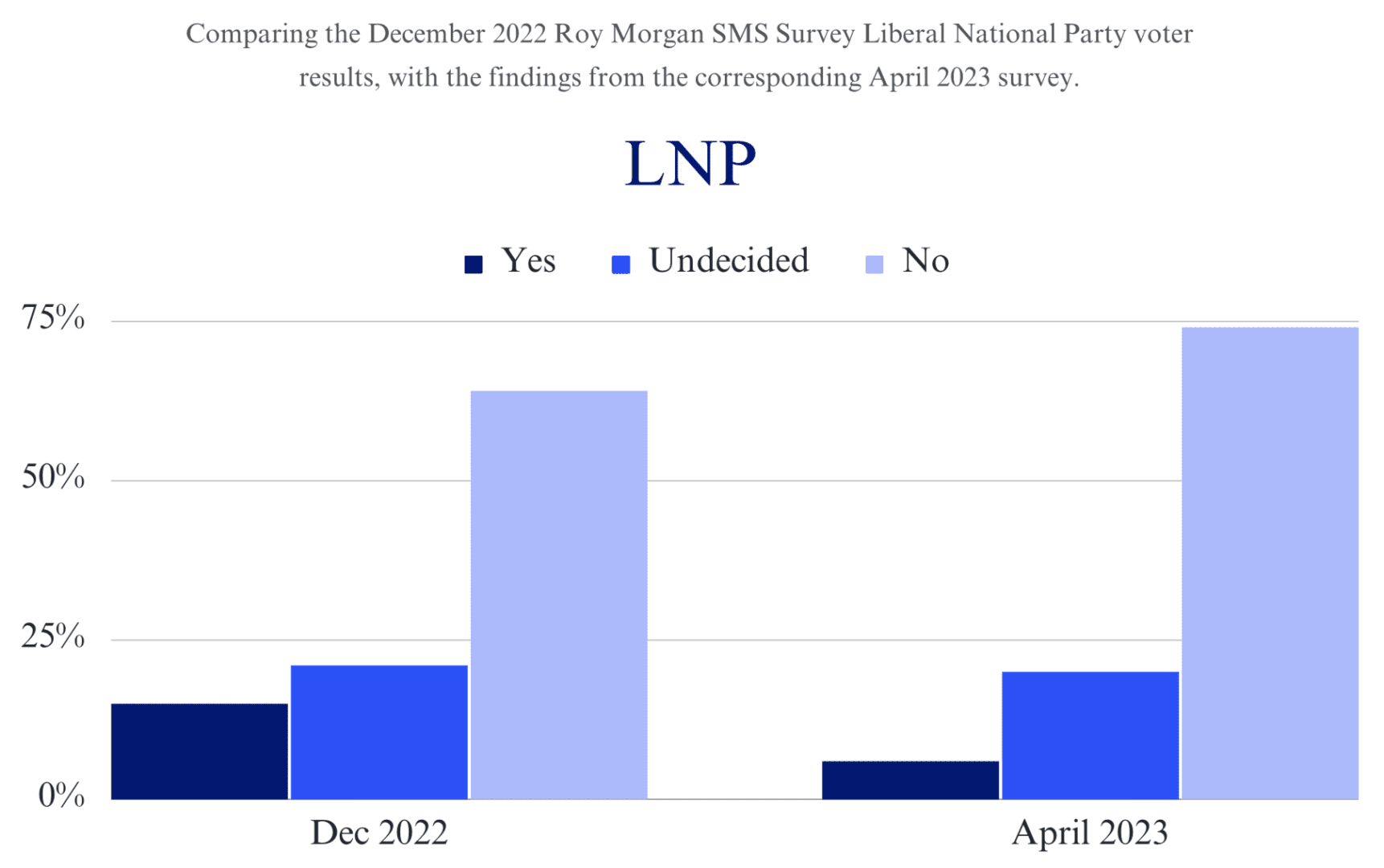
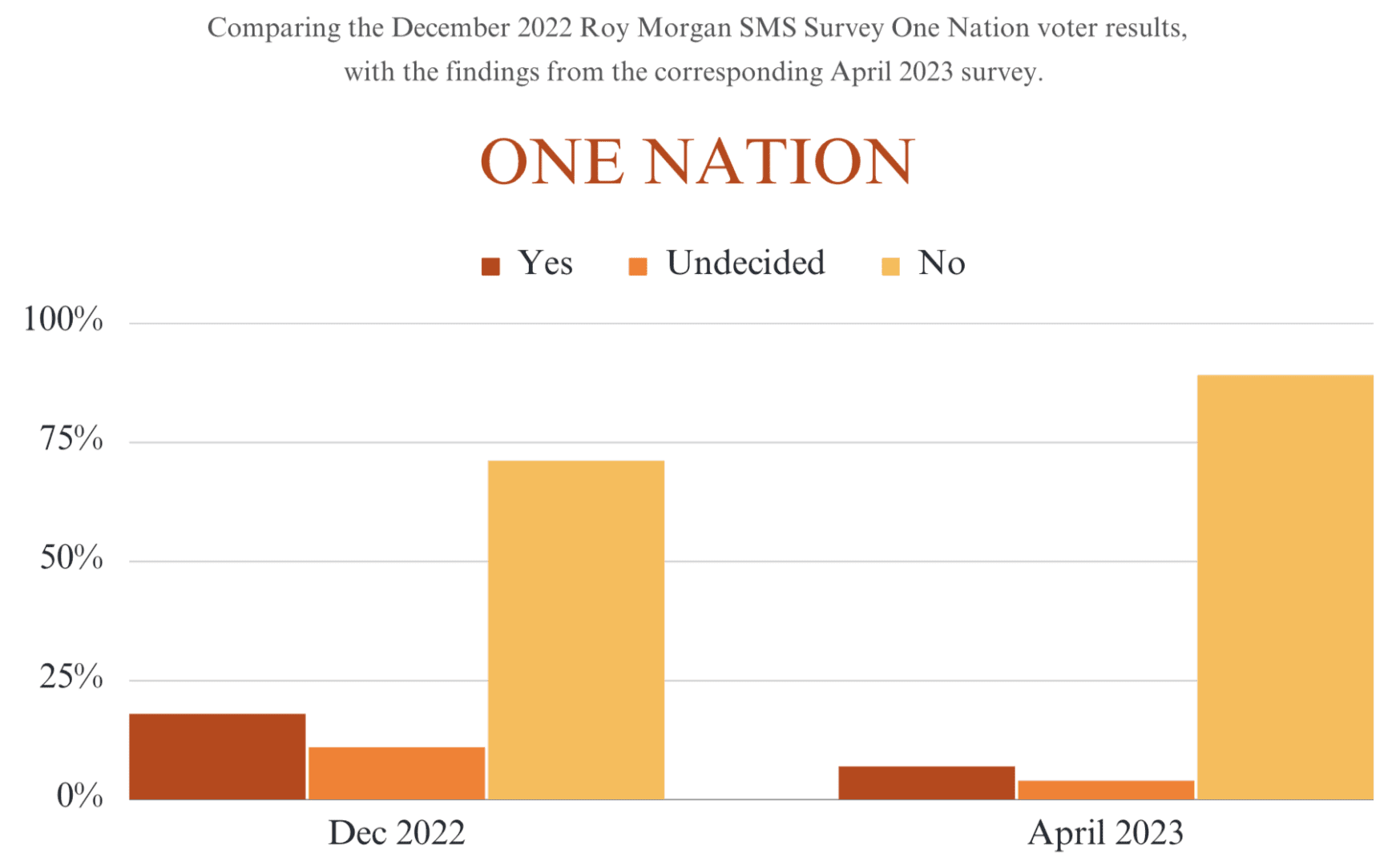
For a referendum to pass in Australia, a majority of Australian voters nationally and a majority of voters in at least four of six states must vote in favour of the proposal.
However, despite a more significant number of Australians still supporting ‘The Voice’, the Roy Morgan survey has recorded a collapse from December to April across all Australian states and territories, revealing the issue may still be divisive and that there may still be challenges in implementing the proposal.
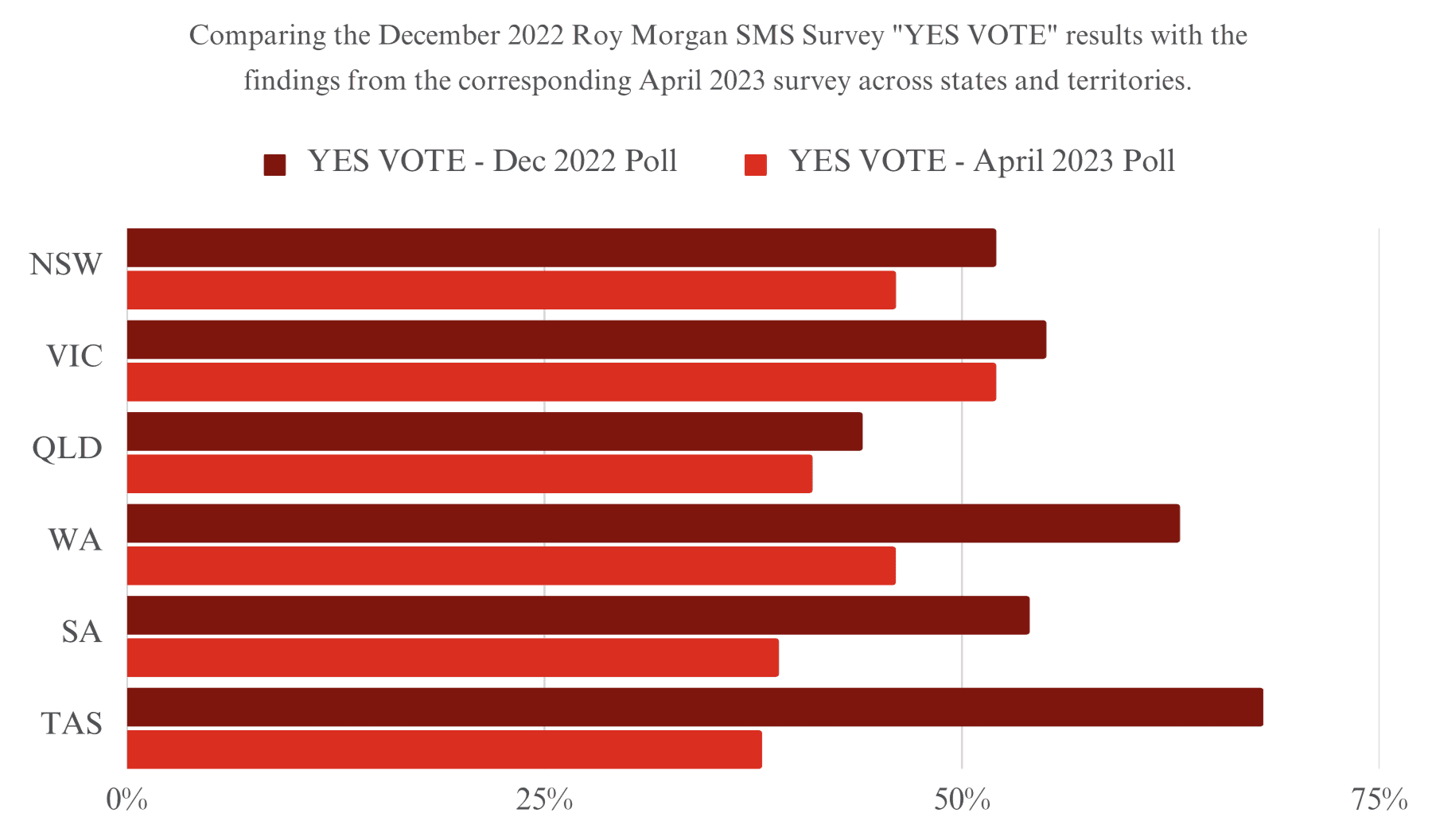
The findings show that the largest drop occurred in Tasmania, down 12 points from December, followed by Queensland, down 11 points, with the smallest decline observed in the Northern Territory at 3 per cent.
The results from the survey also concluded that whilst two large and three slim majorities across the Australian states could have once seen the referendum succeed, the April findings reveal there are now more voters opposed from both Queensland and South Australia than there are in favour.
As part of the survey, respondents were asked a follow-up question on their decision for or against the established Aboriginal Torres Strait Islander Voice to Parliament, the reoccurring rationale being the lack of detail, understanding or access to enough information.
The last referendum in Australia occurred in 1999, indicating that no Australian under 42 will have voted in a referendum before, and Michele Levine said that among other concerns of undecided or opposition voters was the lack of detail surrounding the voices’ function and operation.
This reveals an ongoing trend with the Australian public struggling to pass changes to the constitution since its origin in 1901, with only 8 from a total of 44 proposed changes carried.
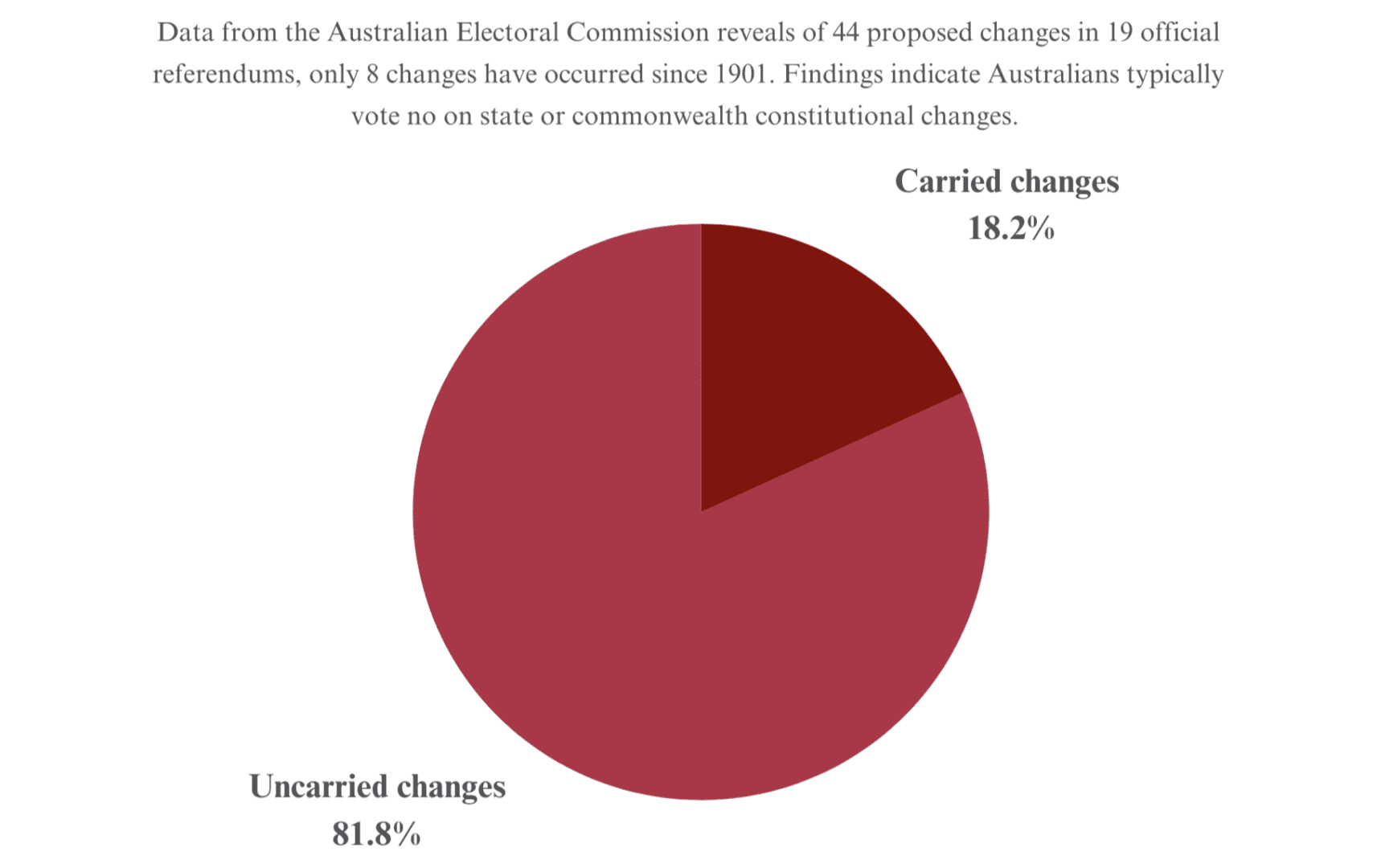
“History shows that passing a referendum in Australia generally requires bipartisan agreement on the change,” Michele Levine said.
Despite the plunge and many remaining unsure of their decision in the forthcoming Indigenous Voice to Parliament referendum vote, Museum of Australian Democracy director Stephanie Bull in support of Wednesday’s proposed funding, remained hopeful that Australians can maintain confidence in contributing to referendum conversations.
“The museum’s events, exhibitions and public programs will encourage thousands of visitors to improve their understanding of democracy and give them the skills required to contribute to it,” she said.
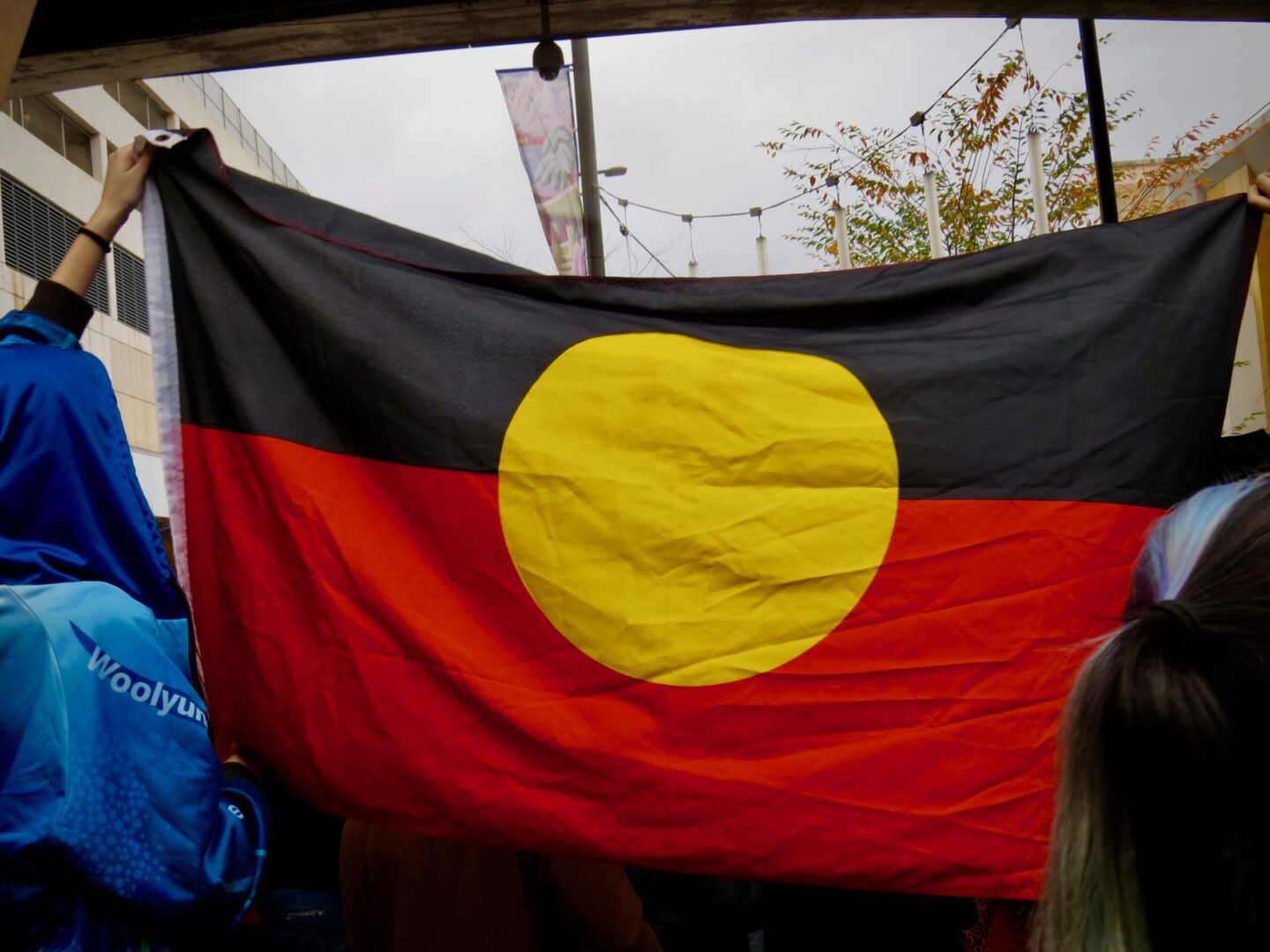
Photo by Scarlett Lewis, The Australian Aboriginal Flag
With reporting from Scarlett Box

